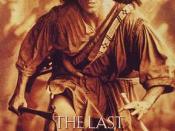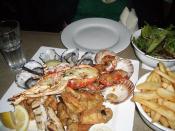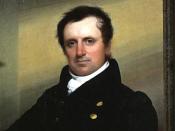In many ways Cooper's "The Last of the Mohicans" is the first American adventure novel, the first American popular novel, and the first novel that features Native Americans as main characters. It became probably the icon by which all Native Americans were drawn for generations after that. The Native Americans in Cooper's novel seem either entirely good (Uncas and Chingachgook) or entirely evil (Magua and most of the Hurons).
Magua is a chief in the neighbouring Huron tribe, he is the antagonist of the novel. His evil nature exists in stark contrast to the goodness of the Mohicans. But in my opinion, he is a victim of the misfortunes he has suffered at the hands of European conquerors. We might see him as a case of colonization gone wrong. For this reason Magua appears to be sometimes even a sympathetic and a deplorable character. At the same time he is extremely brave.
He is not easily fooled and has abundance of native intelligence. Anyway, clearly Magua is very vengeful and duplicitous. Yet there is a moment where he provides a partial explanation for his horrible behaviour: "Was it war, when the tired Indian rested at the sugar-tree to taste his corn! Who filled the bushes with creeping enemies! Who drew the knife!" These are not questions, but simple statements that all have the same answer. This Huron chief is also characterized by his ambition and hunger for power. When Heyward tries to dupe him into believing that he should let them go, we see that his appeal to Magua's braveness and his reference to the past wrongs that Magua has suffered do affect the chief somewhat.
Magua's "faking" of death is clever, but violates the honesty of the hand-to-hand combat. Unlike the Mohicans, who are willing...


